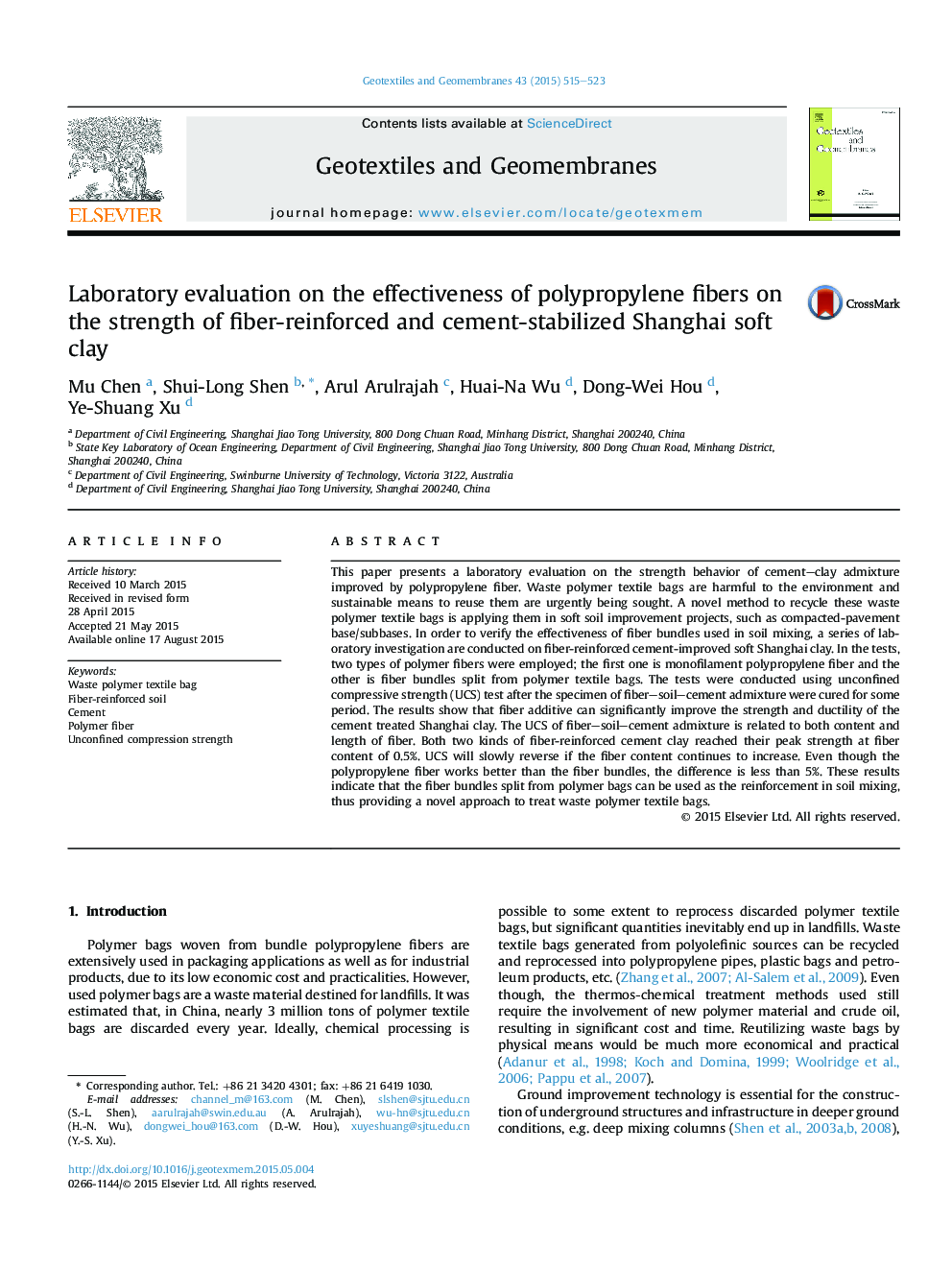| Article ID | Journal | Published Year | Pages | File Type |
|---|---|---|---|---|
| 274004 | Geotextiles and Geomembranes | 2015 | 9 Pages |
This paper presents a laboratory evaluation on the strength behavior of cement–clay admixture improved by polypropylene fiber. Waste polymer textile bags are harmful to the environment and sustainable means to reuse them are urgently being sought. A novel method to recycle these waste polymer textile bags is applying them in soft soil improvement projects, such as compacted-pavement base/subbases. In order to verify the effectiveness of fiber bundles used in soil mixing, a series of laboratory investigation are conducted on fiber-reinforced cement-improved soft Shanghai clay. In the tests, two types of polymer fibers were employed; the first one is monofilament polypropylene fiber and the other is fiber bundles split from polymer textile bags. The tests were conducted using unconfined compressive strength (UCS) test after the specimen of fiber–soil–cement admixture were cured for some period. The results show that fiber additive can significantly improve the strength and ductility of the cement treated Shanghai clay. The UCS of fiber–soil–cement admixture is related to both content and length of fiber. Both two kinds of fiber-reinforced cement clay reached their peak strength at fiber content of 0.5%. UCS will slowly reverse if the fiber content continues to increase. Even though the polypropylene fiber works better than the fiber bundles, the difference is less than 5%. These results indicate that the fiber bundles split from polymer bags can be used as the reinforcement in soil mixing, thus providing a novel approach to treat waste polymer textile bags.
